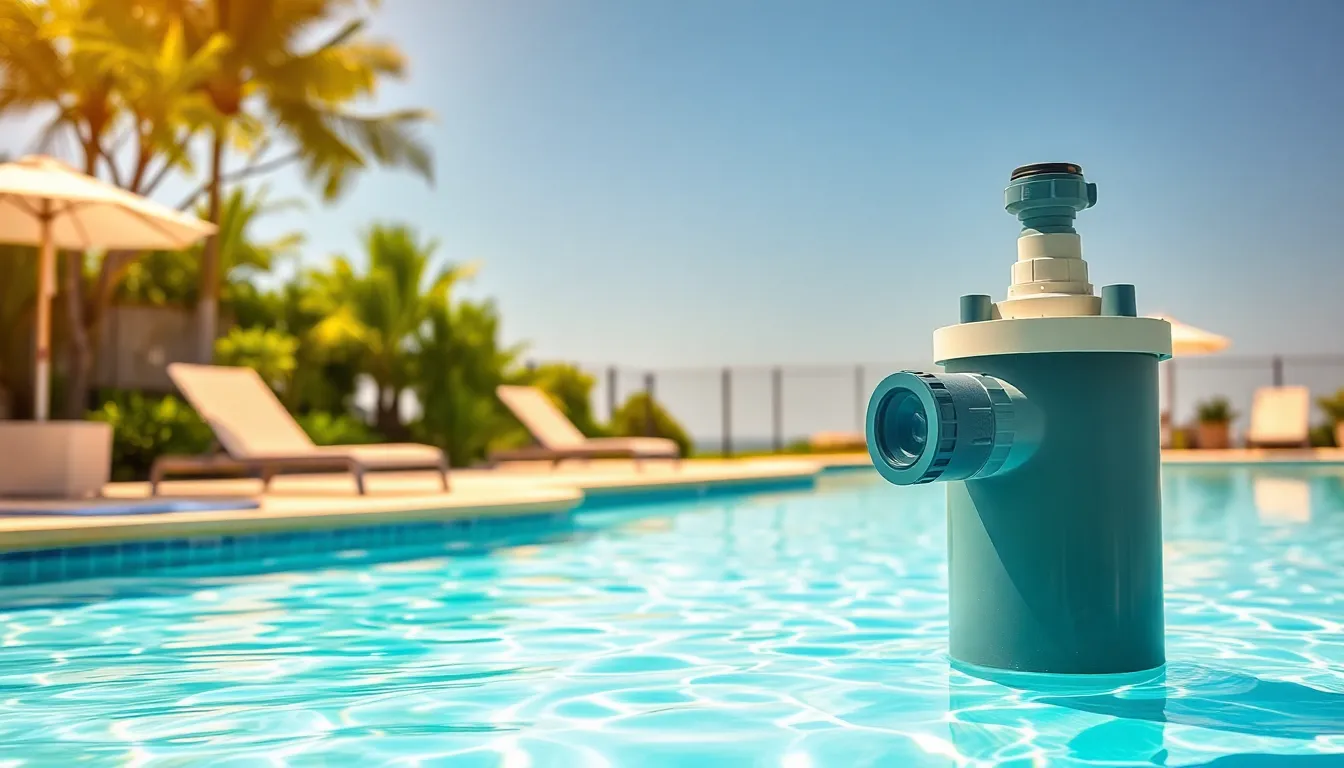Tired of that classic pool smell that makes you feel like you’re swimming in a giant bowl of bleach? You’re not alone. Many pool owners are diving into the world of chlorine alternatives, seeking a more pleasant and eco-friendly way to keep their water crystal clear.
Table of Contents
ToggleOverview of Chlorine Alternatives Pool
Pool owners increasingly seek alternatives to chlorine for water sanitation. Some turn to saltwater systems, which generate chlorine through electrolysis. Such systems often present a gentler swimming experience, reducing skin irritation and eye redness.
Another option, ozone generators, use ozone gas to purify water. As a powerful oxidizer, ozone effectively breaks down contaminants. Ozone also reduces the chemical levels needed for sanitation, providing a clearer pool environment.
UV-C light systems represent another viable choice. These systems utilize ultraviolet light to inactivate bacteria and viruses. While not a standalone solution, they can significantly lower chlorine dependence, resulting in fewer chemicals in the water.
Bio-filtration systems employ natural processes to keep pool water clean. Utilizing plants and beneficial bacteria, these systems create a sustainable ecosystem. The method may require more maintenance but offers a chemical-free alternative.
Additionally, mineral systems introduce minerals, such as silver and copper, into pool water. These minerals effectively control algae and bacteria growth. Such products promise a natural feel akin to swimming in freshwater.
Combining various methods often proves effective. Pool owners can achieve optimal sanitation by selecting the right mix of technologies. Greater attention to these alternatives enhances water quality while creating a more inviting pool experience.
Chlorine alternatives not only address the concerns related to chemical use but also align with eco-friendly practices. Options available cater to various preferences, making transitioning easier for those wishing to move away from traditional sanitation methods.
Types of Chlorine Alternatives

Various options exist for pool owners seeking effective alternatives to traditional chlorine. Each method offers unique benefits for maintaining clear, clean water.
Saltwater Systems
Saltwater systems use salt to generate chlorine through electrolysis. This process produces a gentler form of chlorine that minimizes harsh chemical odors. Saltwater pools also tend to have softer water, enhancing comfort for swimmers. The initial investment for installation can be higher, but ongoing maintenance costs often remain lower than those of traditional chlorine systems. Regular monitoring of salinity and routine cleaning of salt cells ensures optimal function.
Mineral Systems
Mineral systems introduce natural elements such as silver and copper to control algae and bacteria growth. This method reduces the amount of chlorine needed, leading to softer water. Many pool owners find that mineral systems help maintain water clarity while minimizing chemical usage. Routine maintenance includes monitoring mineral levels and replacing mineral cartridges as needed. Long-term use of mineral systems often results in a more pleasant swimming experience.
UV Systems
UV systems utilize ultraviolet light to inactivate bacteria and viruses present in pool water. This method effectively maintains water clarity without producing harmful byproducts commonly associated with chlorine. Pool owners appreciate the low maintenance and chemical-free aspect of UV systems. Regular bulb replacement is necessary to ensure efficiency, typically every 12 to 24 months. Combining UV systems with other sanitation methods often enhances overall water quality.
Benefits of Chlorine Alternatives
Chlorine alternatives offer several advantages that attract pool owners seeking safer and more pleasant swimming environments. These options reduce exposure to harsh chemicals, improve water quality, and promote a healthier swimming experience.
Reduced Chemical Exposure
Alternatives like saltwater and mineral systems minimize the presence of strong chemicals commonly associated with traditional chlorine. This reduction lowers the likelihood of skin irritation and respiratory issues for swimmers. Pool owners notice an absence of overwhelming chemical odors, allowing for a more enjoyable atmosphere. Ozone generators and UV systems inactivate pathogens without introducing additional chemicals, keeping the water clean and safe. Thus, selecting these alternatives supports a healthier environment for swimmers and ecosystems.
Enhanced Water Quality
Chlorine alternatives significantly enhance overall water quality. Saltwater systems produce softer water that feels gentler on the skin while promoting clearer visibility. Mineral systems effectively balance pH levels, leading to fewer fluctuations that jeopardize water clarity. UV systems provide efficient sanitation by neutralizing harmful microorganisms without byproducts, reducing the need for additional chemical treatments. As a result, pool owners experience cleaner, healthier water, providing a more appealing swimming experience.
Factors to Consider When Choosing Alternatives
Making the right choice for a chlorine alternative involves several key factors. Costs and maintenance are two critical aspects that influence decisions.
Cost Implications
Initial investment varies significantly among alternatives. Saltwater systems typically require higher upfront costs due to equipment and installation. Mineral systems often have moderate costs and may provide savings over time. UV systems and ozone generators fall into a similar price range, offering long-term benefits that justify their expenses. Ongoing costs, including replacement parts and energy consumption, also play a role in total expenses. Evaluating these financial factors helps pool owners select the best option for their budget.
Maintenance Requirements
Maintenance needs differ substantially among the various alternatives. Saltwater systems require regular monitoring of salt levels and periodic cell cleaning. Unlike saltwater systems, mineral systems demand less frequent maintenance, but occasional replenishment of minerals is necessary. UV systems need minimal upkeep, primarily focused on replacing bulbs annually. Ozone generators similarly require attention to ensure proper function. Assessing maintenance demands aids pool owners in determining the most convenient and suitable alternative.
Exploring chlorine alternatives opens up a world of possibilities for pool owners seeking a more enjoyable and eco-friendly swimming experience. These options not only enhance water quality but also create a safer environment by minimizing harsh chemical exposure. From saltwater systems to UV-C light technology each alternative offers unique benefits that cater to different preferences and budgets.
By considering factors like initial investment and maintenance needs individuals can make informed choices that align with their lifestyle. Embracing these alternatives not only improves the pool experience but also supports healthier ecosystems. Transitioning away from traditional chlorine methods is a step towards a more sustainable and pleasant pool environment.



